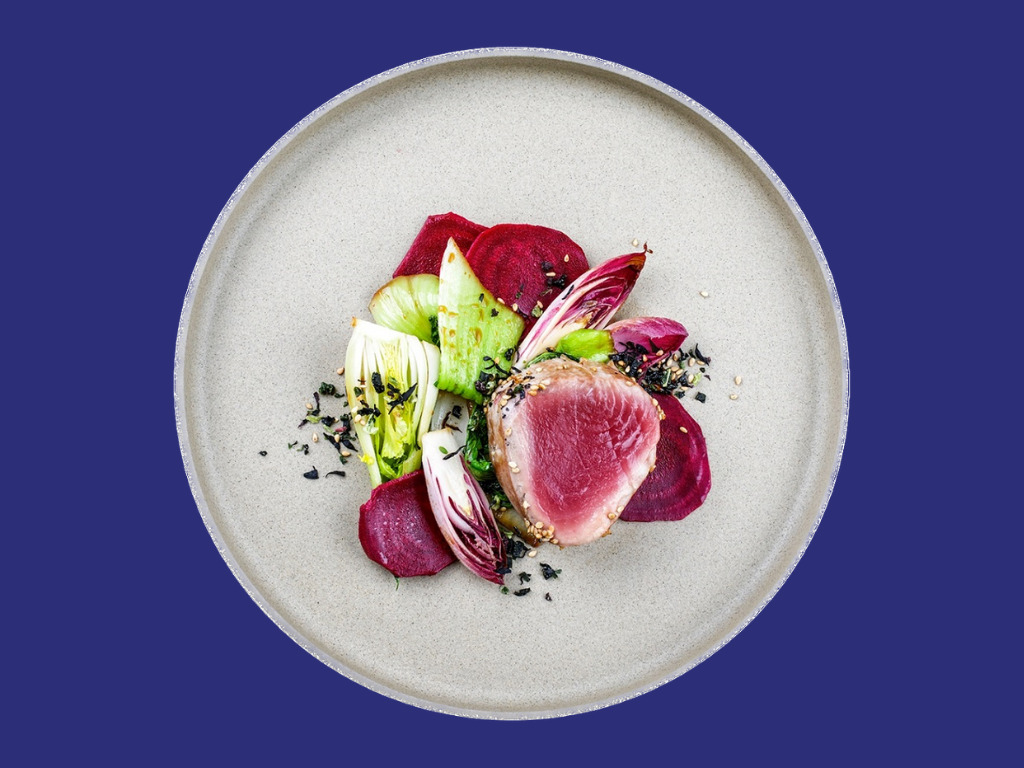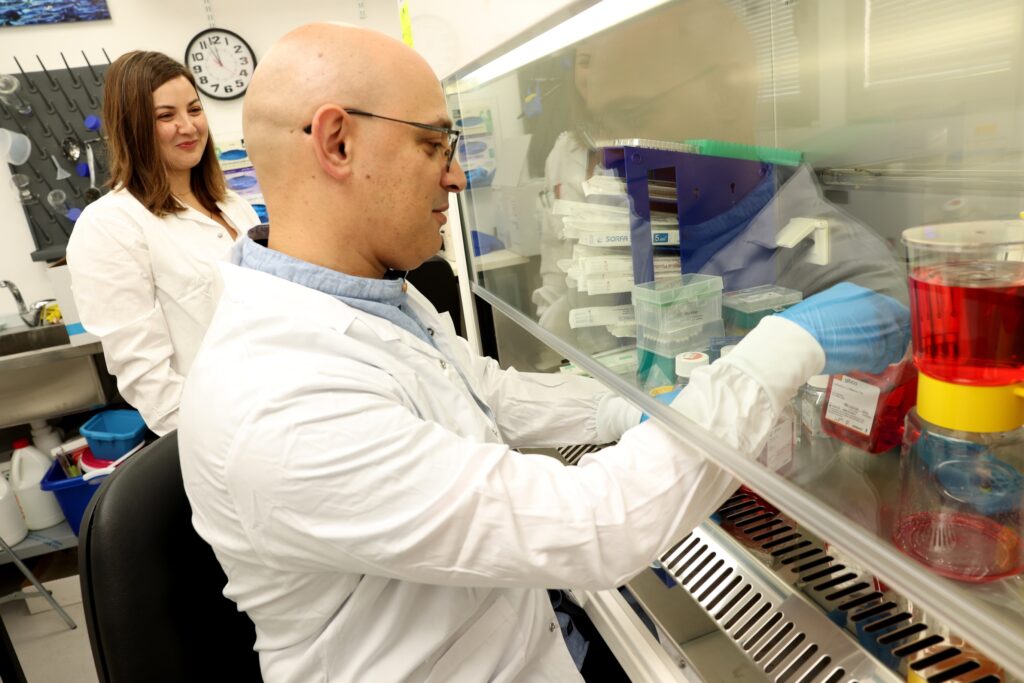Cultivated Bluefin Tuna Producer Wanda Fish Nets $7M in Seed Funding, Aims for 2026 Launch
5 Mins Read
Wanda Fish, the Israeli startup making cultivated whole-cut bluefin tuna, has raised $7M in a seed funding round to accelerate production and scalability. The company is planning for regulatory approval in the US in 2025, and says it will launch in the market the year after.
The latest cash injection brings Wanda Fish’s total financing to $10M. The latest funding round was led by Dutch aquaculture investment fund Aqua-Spark and joined by returning pre-seed investors The Kitchen Hub by the Strauss Group, Peregrine Ventures, LLC, Pico Venture Partners, MOREVC, and CPT Capital, LLP. The announcement came the same day BlueNalu, a fellow cultured bluefin tuna maker, announced its $33.5M Series B raise.
Founded in 2021 as a joint venture between Israeli food tech incubator The Kitchen Hub and biotech innovation expert Daphna Heffetz, Wanda Fish makes whole-cut filets of cultivated seafood. The company started with bluefin tuna, a fish species that is sought-after for its flavour, texture and nutritional attributes. The premium product is used in high-grade sushi and sashimi restaurants across the world– with Asia responsible for over 80% of its global consumption.
But bluefin tuna supply can be limited and extremely variable in quality, and it faces declines in stocks due to overfishing and illegal, unregulated and unreported fishing, according to BlueNalu. Wanda Fish adds that further demand is driving the species towards endangerment and has led to governments placing quotas to limit its fishing. Moreover, tuna is one of the most polluted fish in the oceans, often contaminated with plastic debris and extremely high levels of heavy metals like mercury.
How Wanda Fish makes cultured bluefin tuna

Wanda Fish, which is still in relatively early stages, says it has made progress on several key breakthroughs to develop a cell-cultured whole-cut bluefin tuna prototype. This includes forming a 3D filet structure using bluefin tuna cells, differentiated into both muscle and fat tissues. The startup is using animal-free growth mediums and custom bioreactors as they will be instantly scaleable, when appropriate, and allow for costs to remain palatable.
With its proprietary tech, the company can control fat levels (which is key as the fish is renowned for its balance of fat and protein). This can help develop a diverse range of filet cuts, including the premium tuna belly cut called toro that BlueNalu is working on (which plans to open a commercial-scale facility by 2027).
In March 2022, Wanda Fish entered a licensing agreement with Tufts University, gaining exclusive access to the latter’s IP surrounding cultivated fish development, created by cellular agriculture expert David Kaplan. As part of the collaboration, the company will support a two-year research programme by the university into the production of fish cells.
“We start with a single, one-time sample of a real native fish muscle and fat tissues,” Kaplan said at the time. “We then pursue the replication of the biological growth of fish, with the nutritional attributes, including protein and omega-3 content, as well as the flavour and textural properties.”
Price parity and regulatory approval
“By integrating innovative proprietary applications from multiple disciplines, including cell culture, biotechnology, food tech, and culinary design, we will produce a versatile range of fish species to satisfy all preferences, at affordable prices, and with uncompromising quality,” Wanda Fish CEO Heffetz had added. It’s worth noting that while cost continues to be one of cultivated meat’s biggest challenges, bluefin tuna’s premium position means it wouldn’t carry the same price differences as cultured alternatives to beef, pork or chicken.
Heffetz told TechCrunch that Wanda Fish expects to obtain regulatory approval from the USDA and other agencies in early 2025, and plans to enter foodservice by 2026. “We will now scale up production and work on the cost parity. We will also collaborate with big food companies for distribution. Our core technology is being done in-house, but we need to collaborate to get to market as fast as possible.”
“We are excited and feel incredibly fortunate to collaborate with Aqua-Spark in propelling our venture forward,” Heffetz said in a statement. “We are on a shared mission to improve the global food value chain, creating a tasty, more sustainable future for all. This financial backing by leading global venture funds gives us significant leverage to make sustainably cultivated, cruelty-free, and ocean-friendly bluefin tuna a reality.”

Growing investment in cultivated seafood
“Wanda Fish is transforming visionary ideas into a tangible, cutting-edge product that is just steps away from reaching its prototype,” said Jonathan Berger, CEO of The Kitchen Hub. “This is credited to a skilled and ambitious multinational team led by Daphna Heffetz that is undoubtedly poised for a resounding success story in the thriving alternative protein space; this spells good news for an overburdened marine ecosystem.”
Wanda Fish is part of the burgeoning alt-seafood category. According to the industry think tank the Good Food Institute, at least 20 companies are working in the cultured seafood sector across the supply chain, with investment tripling between 2016-22. Apart from BlueNalu, these also include Umami Meats, Avant Meats, Shiok Meats, Bluu Seafood, Finless Foods, Wildtype Foods, and Marinas Bio (which is making a similar move into luxury seafood with cultivated caviar).
Wildtype (from California) secured the largest-ever cultivated seafood investment with a $100M Series B for its cell-based salmon in 2022. Meanwhile, China’s Avant closed a $10.8M Series A round the same year, while in 2021, Singapore’s Shiok Meats closed an oversubscribed bridge round that brought its total financing to $30M – the cultured crustacean player counts Aqua-Spark as a backer too. Earlier this year, Berlin-based Bluu Seafood secured $17.5M in a Series A raise with the aim to launch in Singapore next year.



